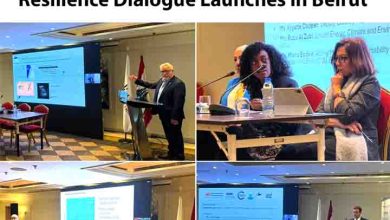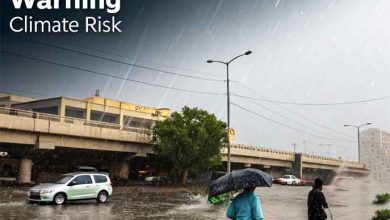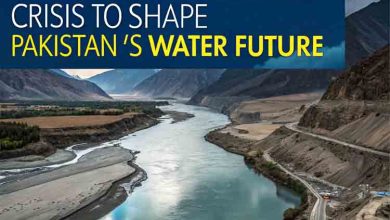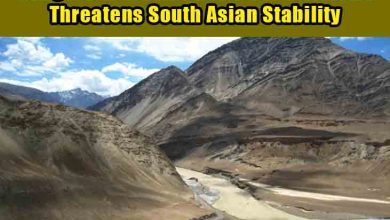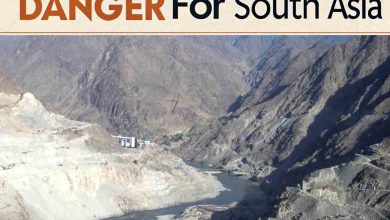Water Conservation at Every Level: A Critical Need in 2025, Say Experts
Water conservation at every level is essential in 2025, warn experts at Lahore seminar amid worsening water crisis in Pakistan due to below-average rainfall.
Water conservation at every level is not just a slogan but a national necessity in 2025, as Pakistan faces an alarming water crisis due to climate change and poor management. From drying dams to deteriorating public health, the situation calls for urgent, multi-level action.
According to experts, this isn’t a distant concern — Pakistan is already facing the consequences of water mismanagement and insufficient rainfall, especially in provinces like Punjab, Sindh, and Balochistan.
PMD Issues Drought Alert for Three Provinces
The Pakistan Meteorological Department (PMD) recently issued a drought warning for major regions, including Punjab, Sindh, and Balochistan, citing below-average rainfall as the primary concern.
-
Rainfall from September 1, 2024, to March 21, 2025: 40% below normal
-
Average temperatures in March 2025: 2-3°C above normal in southern Pakistan
-
Dry spells: Over 200 days in some southern regions
These conditions are pushing the country towards critical water shortages, according to the PMD.
Water Levels in Tarbela and Mangla Reach Danger Zone
The Tarbela and Mangla Dams, key sources of water for agriculture and domestic use, have reported critically low water levels:
-
Tarbela Dam: 1,402 feet
-
Mangla Dam: 1,061.75 feet
Such levels raise concerns for irrigation, drinking water, and power generation across the country.
Experts Speak Out at Lahore Seminar
In response to the looming crisis, a seminar titled “Save Water – Save the Future of Pakistan” was recently held at a private club in Lahore. The event brought together environmental and water management experts, including:
-
Dr. Mansoor Hashmi (NESPAK)
-
Dr. Muhammad Nawaz Chaudhry (NESPAK)
-
Mian Abdullah (Former MD, WASA)
-
Mian Nabeel Ashraf
-
Khalid Javaid
-
Dr. Muhammad Sadiq
-
Adnan Hussain Malik
-
Khawaja Umar Zaib
-
Dr. Zahid Hussain
-
Ms. Shazia
Key Highlights:
-
“If we save one bucket of water today, a whole generation will thrive tomorrow.”
-
Pakistan could face severe water scarcity by 2035 if corrective action is not taken.
-
80% of diseases in Pakistan are linked to contaminated water.
Water Scarcity Endangers Health and Agriculture
Water scarcity is more than an infrastructure issue — it’s a health emergency and a threat to food security.
Health Risks:
-
Contaminated water contributes to waterborne diseases such as cholera, typhoid, and diarrhea.
-
The lack of clean water disproportionately affects children and rural communities.
Agricultural Concerns:
-
Agriculture consumes nearly 90% of the available freshwater.
-
Experts warn that without sufficient irrigation, crop yields will fall, affecting the economy and food supply.
Key Recommendations for Immediate Action
The seminar concluded with practical steps to combat the worsening water crisis. Below are the expert recommendations for individuals and policymakers:
Government-Level Measures
-
Build new water reservoirs
-
Promote rainwater harvesting systems
-
Enforce water-saving agricultural techniques like drip irrigation
-
Launch nationwide awareness campaigns
-
Involve schools, colleges, and media in advocacy
Individual Actions
-
Turn off taps while brushing or washing
-
Avoid wasting water when cleaning cars or floors
-
Install water-saving devices in homes and offices
-
Report leaky pipes and wastage to authorities
Every Drop Counts
“A small effort can make a big impact!”
These recommendations stress that water conservation at every level — from policy to personal habits — is crucial.
Conclusion: A Drop Saved Today is a Life Saved Tomorrow
In 2025, water conservation is no longer optional — it’s a national responsibility. With the worsening drought conditions, low reservoir levels, and growing population, Pakistan stands at a critical juncture.
The message from experts is loud and clear: Act now or face irreversible damage. Whether you’re a policymaker, a farmer, a student, or a homemaker — you have a role to play.



